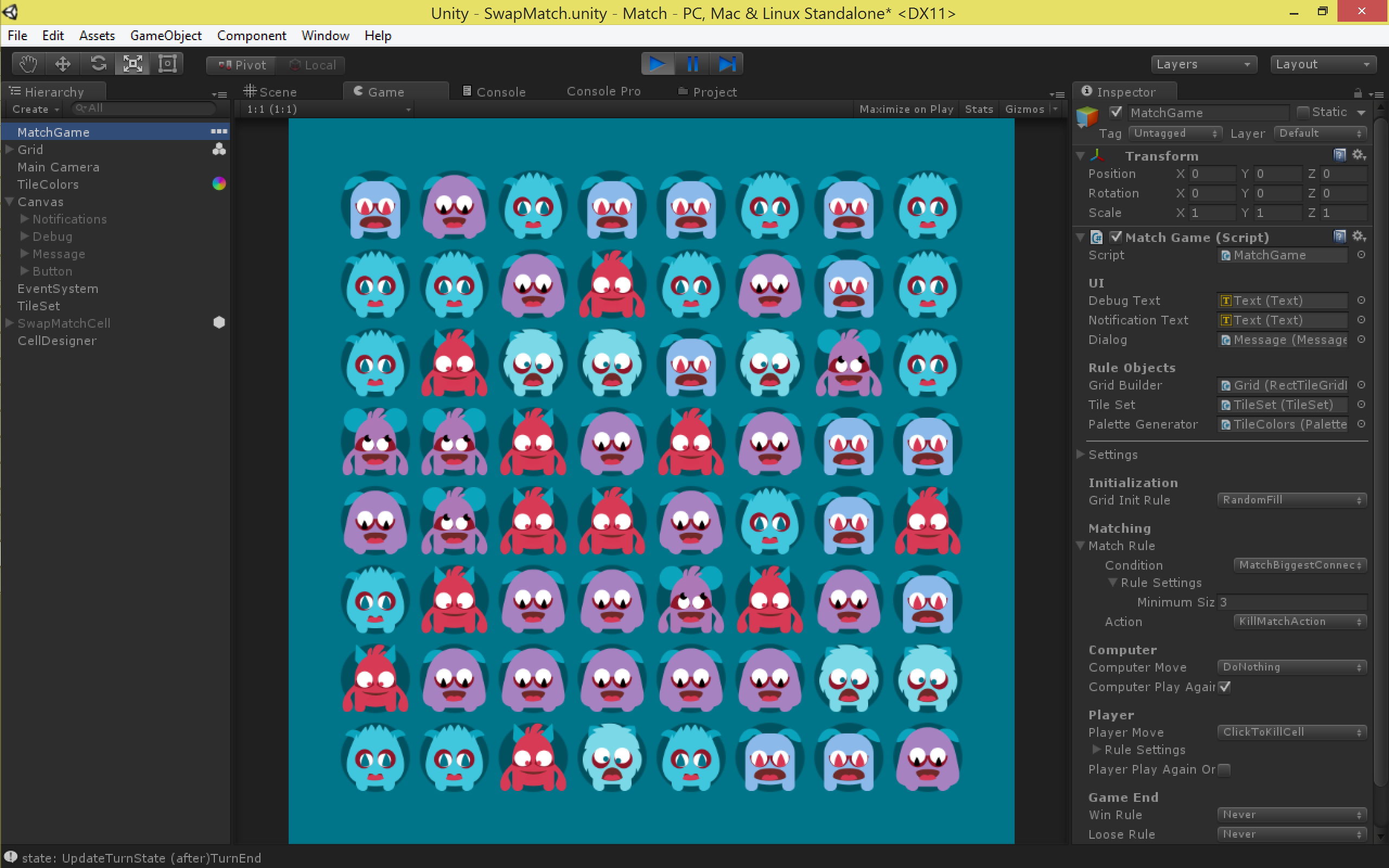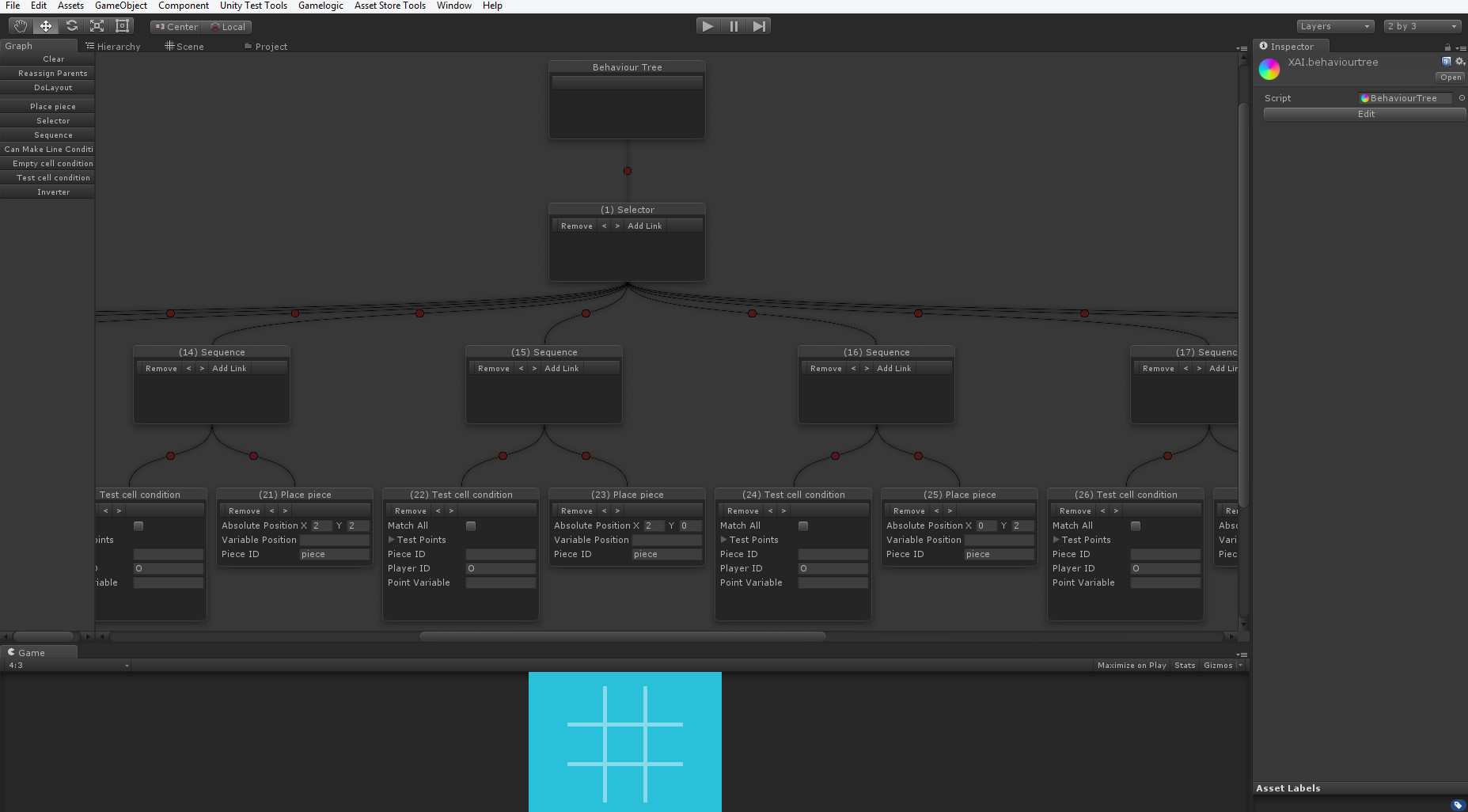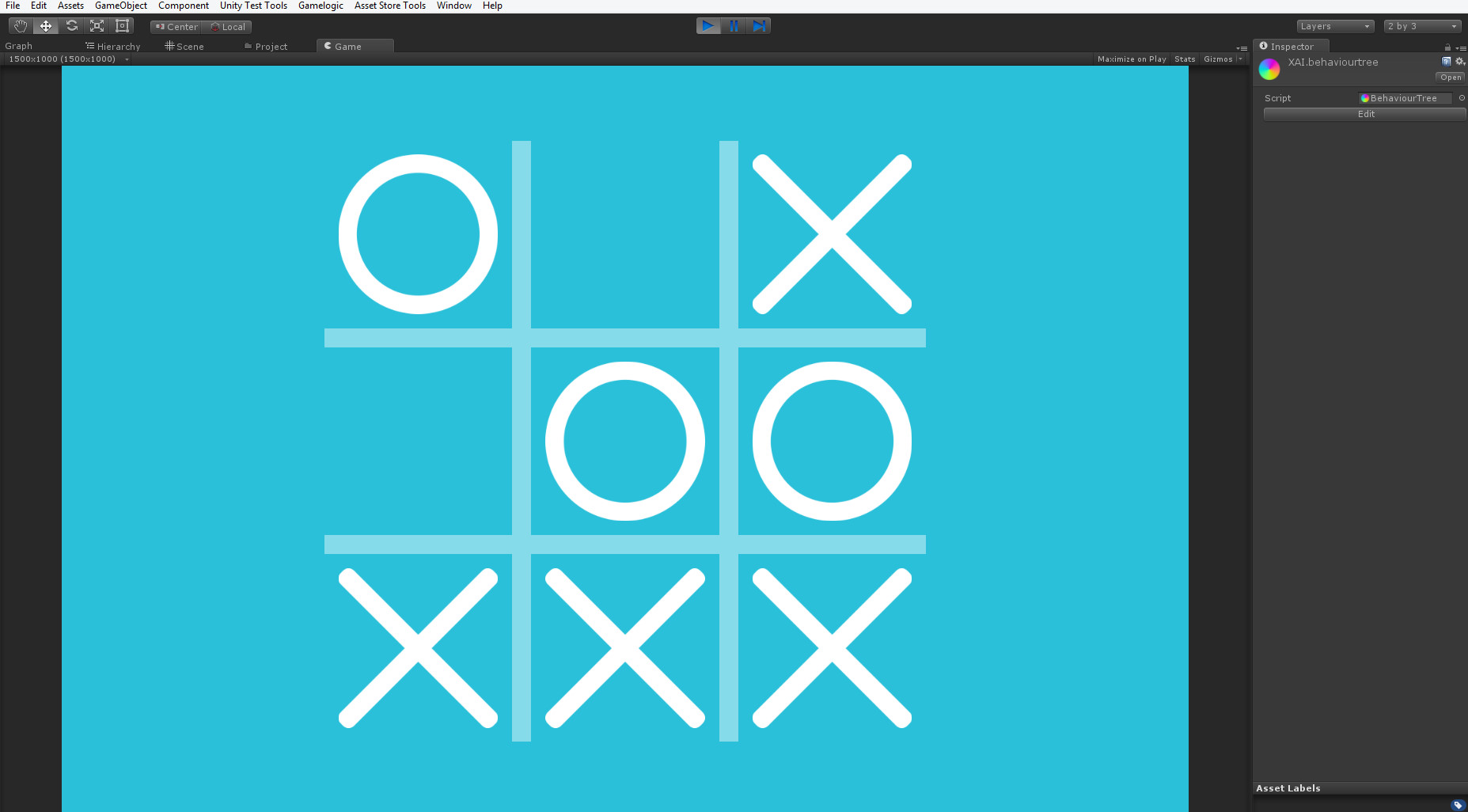Try out some of our new tools: Match and Abstract Strategy
Hi Everyone,
Over the last few months we have been developing two new Unity plugins. The beginning phase is always a bit difficult to get feedback, so if you want to give them a try, we would really appreciate any you could give us. Both are plugins built on top of our Grids library.
If you want to have a life-long free licence of any of these tools, please send me an email (herman@gamelogic.co.za). If you use it and have some feedback, we would be very grateful.
Match

This is a frame work for building match games. It is a crystallization of the ideas in our match game mechanics breakdown. It supports a variety of tile setups and tile types, a variety of match rules, and ways to configure gravity and game flow. It allows you hooks to put in your own effects and logic, it has a basic score manager, and handles cascades and combos.
The idea of it is to make it easier to experiment with new match mechanics, rather than just making it easy to build games with established mechanics (although, those as very easy to handle). We are not sure whether we have (or will) succeed in this goal; we need to have people use it to know.
Abstract Strategy
When we did our 30 Games campaign, there were so many ideas we had for cool games, but which we didn't build because it required AI. Games like chess, checkers, reversi, nine-men's morris. One source of these types of games are from mathematicians, that invent them all the time. (They event them, then prove things about them, instead of making something people can actually play).
While many of these games have simple rules, the AI is always problematic. So we tried to come up with a way to make developing AI easier for these types of games. The core of the AI is behaviour trees (which I think is a new way to approach AI for these types of games). We were lucky enough to get @Chippit on board, who did most of the development.
In addition to the AI, it is also a framework for specifying rules more consistently, and it deals with things such as moving pieces, capturing, and so on, with hooks for plugging in your own logic.


Over the last few months we have been developing two new Unity plugins. The beginning phase is always a bit difficult to get feedback, so if you want to give them a try, we would really appreciate any you could give us. Both are plugins built on top of our Grids library.
If you want to have a life-long free licence of any of these tools, please send me an email (herman@gamelogic.co.za). If you use it and have some feedback, we would be very grateful.
Match

This is a frame work for building match games. It is a crystallization of the ideas in our match game mechanics breakdown. It supports a variety of tile setups and tile types, a variety of match rules, and ways to configure gravity and game flow. It allows you hooks to put in your own effects and logic, it has a basic score manager, and handles cascades and combos.
The idea of it is to make it easier to experiment with new match mechanics, rather than just making it easy to build games with established mechanics (although, those as very easy to handle). We are not sure whether we have (or will) succeed in this goal; we need to have people use it to know.
Abstract Strategy
When we did our 30 Games campaign, there were so many ideas we had for cool games, but which we didn't build because it required AI. Games like chess, checkers, reversi, nine-men's morris. One source of these types of games are from mathematicians, that invent them all the time. (They event them, then prove things about them, instead of making something people can actually play).
While many of these games have simple rules, the AI is always problematic. So we tried to come up with a way to make developing AI easier for these types of games. The core of the AI is behaviour trees (which I think is a new way to approach AI for these types of games). We were lucky enough to get @Chippit on board, who did most of the development.
In addition to the AI, it is also a framework for specifying rules more consistently, and it deals with things such as moving pieces, capturing, and so on, with hooks for plugging in your own logic.



Comments
Here's some accurate, but rather dry, information on it: http://mcts.ai/. I'd be happy to provide more information if you're interested, I did do a few years of research on it.
I've never heard of using behaviour trees for these types of games. Do you hand-craft heuristics into behaviour trees, or is it something more devious?
I'm definitely gonna take you up on that offer for more information; thanks!
ATM, the heuristics are handcrafted into the trees, although there are quite a few generic ones. It would be nice if we could deduce heuristics form the rules though...
It looks super fantastically interesting! :D Keen to give it a try! :D
Also, that article is FANTASTIC :)